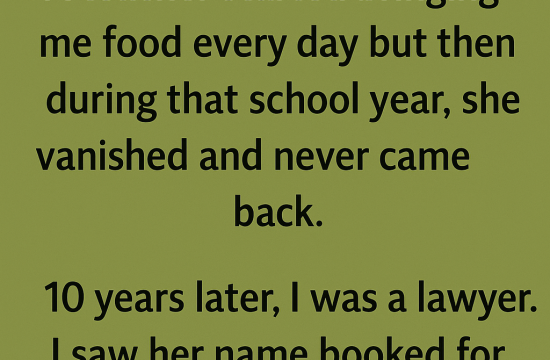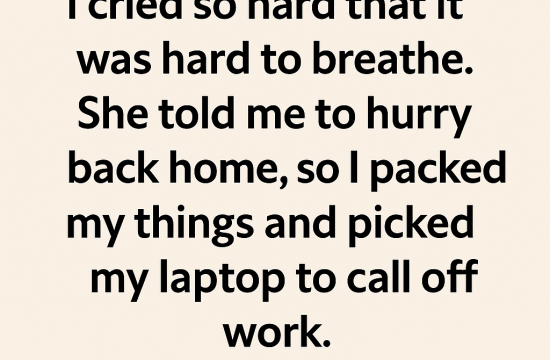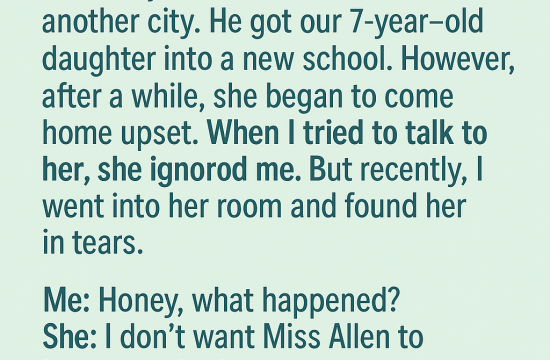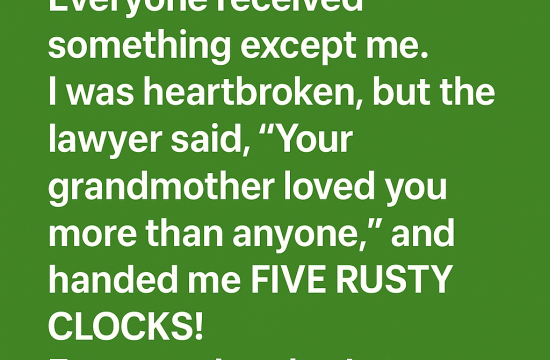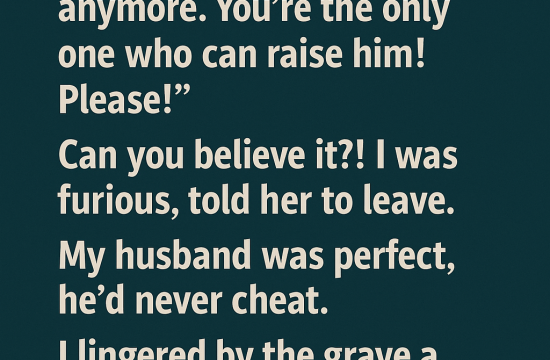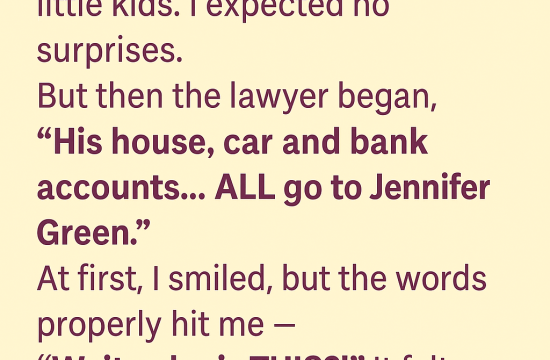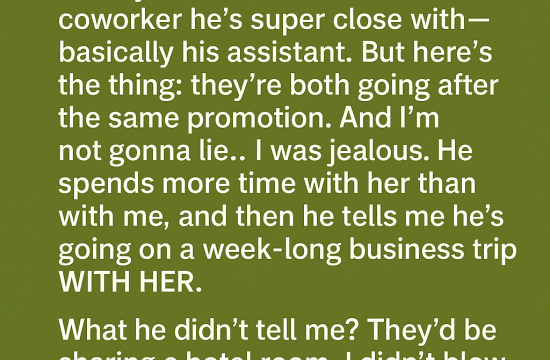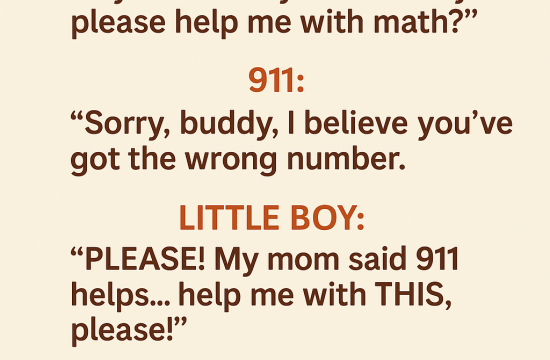When Jeremy walked into that crowded bookstore café three years ago—coffee dripping from his soaked jacket after bumping into me—I never imagined I’d one day be sitting here, questioning everything about the man I married.
He fumbled with napkins, cheeks flushed with embarrassment. That clumsy encounter felt like fate then.
“I’m so sorry… let me buy you another latte,” he said, eyes crinkling with that shy smile I’d grow to love.
“Only if you promise not to spill this one too!” I laughed.
Those early days were magic.
Jeremy left handwritten notes in my work bag, slow danced with me in our tiny kitchen while dinner burned, held me during thunderstorms because he knew they terrified me. He was the dream I didn’t think I deserved—gentle, present, affectionate. He remembered my favorite flowers. He brought me chamomile tea when I couldn’t sleep.
After a whirlwind year of dating, he proposed on the corner where we met, with a ring he’d saved months to buy. The wedding was intimate—just our closest family and friends—as we promised forever.
Two years of marriage passed in a beautiful blur. We talked about babies, about names and nurseries. I was preparing to scale back my hours at the marketing firm so we could finally grow the family we dreamed of.
But Jeremy had one odd quirk I never questioned: every first Saturday of the month, he disappeared.
“Just running errands, babe,” he’d say, kissing my forehead.
“Want company?”
“Nah, boring stuff. I’ll grab groceries on the way back.”
He’d return with bakery treats or fresh vegetables, humming as he unpacked the bags. Occasionally, he disappeared on Sundays too—“Helping Aunt Lina in her garden,” he’d say.
I trusted him. Until one morning last month.
That Saturday, he was jumpy—barely touched his breakfast, glancing at the clock every few minutes.
“Mind if I come with you today?” I asked.
His fork clattered. “What? No, Clover. You can’t… I mean, you shouldn’t come.”
“Why not?”
“She doesn’t like you,” he said gently. “Thinks you’re too young for me. Too… different.”
He grabbed his keys, eyes avoiding mine. “It’s better if you stay here.”
I watched him leave with tears in my eyes and a sinking in my gut. His “Aunt Lina” had always been polite the few times I met her. When did she decide she disliked me? And why hide that for so long?
That week, something shifted. Jeremy was distracted. Guarded. And I couldn’t take it anymore.
Three days later, I attached a GPS tracker to his car.
Saturday morning arrived cold and gray. I waved goodbye from the window, then opened the app on my phone. I watched the dot drift away from Ashville… farther than it had ever gone before.
It stopped at a decaying house on the edge of Cliffside County. I followed.
The house looked abandoned—peeling paint, sagging porch, wind howling through skeletal trees. Jeremy’s car was parked out front. I knocked on the door with trembling fingers.
A kind woman in her 60s answered. “Hello, dear. Are you here for the group?”
“Yes,” I lied.
“Come in. We’re just starting.”
The living room was set up like a community circle. Soft music played. On the wall hung a hand-painted sign:
“Grief Counseling: For Those Who Lost a Spouse.”
And there, in the middle of the circle, was Jeremy—clutching a framed photo, tears rolling down his face.
“It’s been three years since I lost Hannah,” he choked. “Cancer took her. We were planning a family… she even picked names for our future kids…”
I froze.
Who was Hannah?
Jeremy told me I was his first love. He’d never been married.
“She would’ve been 32 next month,” he said. “Some days I still reach for her side of the bed.”
The woman who let me in touched my shoulder. “You alright, honey?”
And that’s when Jeremy looked up.
Our eyes locked.
The photo slipped from his hands and clattered to the floor.
He muttered something to the group and rushed outside, dragging me with him.
“What are you doing here?” he hissed.
I pulled away. “What are you doing, Jeremy? Who is Hannah?”
He looked like a cornered animal. “She’s not real.”
I stared. “What?”
“She’s not real. I made her up.”
He paced frantically. “Clover, I’ve always wanted to be an actor. My parents forced me into business school, but acting’s been my dream. So I go to groups like this to practice. To feel real emotions. Last month I was a recovering alcoholic. Sometimes I pretend to have cancer, or be divorced. It helps me… become the role.”
I staggered back. “You use support groups to practice acting?”
“It’s not what you think—”
“No, Jeremy. It’s exactly what I think. You lie to grieving people so you can rehearse your performance. And you lied to me. For years.”
He followed me to the car. “Clover, don’t tell anyone.”
I didn’t answer. Rain drenched me as I drove home, numb.
That night, he came back with groceries and pastries—like nothing had happened.
“Please… don’t tell anyone.”
I looked at him, this man I’d built a life with, and saw nothing but a stranger.
“Don’t tell them what? That my husband is a liar who exploits pain for ‘practice’?”
“I just… I wanted to be someone.”
“But you weren’t you, Jeremy. Not with them. Not even with me.”
He opened his mouth, but I cut him off. “I need time to think.”
That was three weeks ago.
He’s still in the guest room. Still apologizing. Still explaining. But I’m not listening.
Because trust isn’t a vase you can glue back together. It’s shattered glass—dangerous to touch, impossible to make whole again.
So now I ask myself: Was I ever Jeremy’s wife… or just another character in his performance?
And if I was just a role… when did the act begin?



